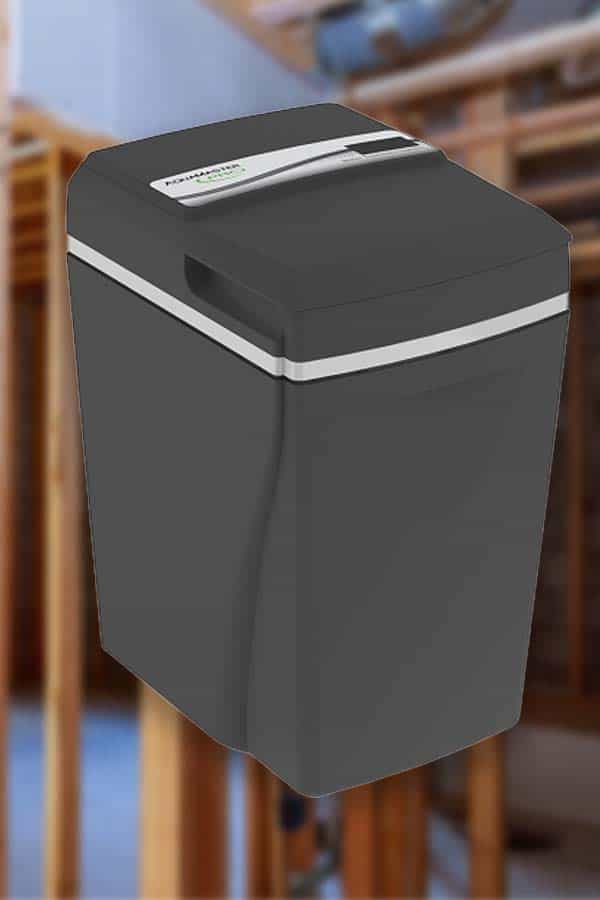Looking to install a water softener? Calgary is no stranger to hard water. While Calgary hard water isn’t bad for you to ingest or use, it might have undesirable effects on your home, with mineral deposits building up in pipes, kettles, dishwashers, and other water-using appliances.
In this water softener buying guide, we’ll go over the answers to your questions and help you decide if a water softener is right for you.
Do I Need a Water Softener?

No matter where you are, there will always be a certain amount of water hardness in your pipes. In Calgary and the surrounding areas, our municipal water supply classifies as Hard to Very Hard, and the Bow and Elbow Rivers contribute a high level of calcium and magnesium to our local water supply. Calgary’s hard water can be a problem.
No doubt you’ve noticed mineral build up around your taps and in certain appliances. If you’re concerned about the type of damage this might do to your house, you’ll likely benefit from a water softener.
How Does a Water Softener Work?
A water softener works to treat your drinking water supply and reduce hardness. It removes minerals through a process of ion exchange, leaving you with soft water for washing and cleaning. (Hard water can safely be used outdoors for watering your lawn and garden.)
The process involves channeling the incoming water supply through a tank lined with a layer of porous polystyrene resin beads. Negatively charged with a sodium ion, the beads are described as anions.
As the water flows over the beads, the positive mineral ions (“cations”) stick to them while the sodium ions are released.
The water softener’s beads must be regenerated with a high-salt (sodium) solution every few days. Usually, this happens in the middle of the night to avoid interfering with the regular operation of the water softener.
According to the manufacturer’s directions, you will have to add sodium chloride to your water softener occasionally to produce the salty brine solution.
Water softener benefits include reducing clogged pipes due to limescale, more energy-efficient and longer-lasting appliances, and softer, more lustrous hair complexion.
Types of Water Softeners
There are several types of water softener, and they differ based on size, type, capacity, and brand. The most common is a salt-based, whole-house, ion/cation exchange unit.
Salt-Free Water Softener
Salt-based softeners, which use sodium chloride, are the most common type. However, they add approximately 200 ml of sodium per litre of usable water. It won’t turn your drinking supply into salt water, but if a household member must restrict their sodium intake for medical reasons, you might be advised to look for an alternative type of water softener.
Salt-Based Ion Exchange Water Softener
Salt-free water softeners use potassium chloride — instead of sodium chloride — for their regeneration process. This is acceptable even on a low sodium diet. Rather than reduce the amount of hard water minerals found in your water, ion exchange water softeners actually descale and prevent minerals from being deposited to surfaces.
One caveat: Potassium chloride is quite a bit more expensive than sodium chloride.
Dual-Tank Water Softener
Dual-tank water softeners are equipped with two tanks so that even when one resin tank is undergoing the regeneration process, the other will be available to use. This will add convenience because you’ll have a constant, uninterrupted flow of softened water at any time of day or night.
Are Water Softeners Environmentally Friendly?
In your research for a new water softener, you might have noticed that water softeners aren’t part of the Energy Star program, which rates appliances based on their energy efficiency.
Since many water softeners use chloride, there are concerns with the salt water draining into municipal wastewater treatment plants, which are not designed to remove chloride. This means that some salt could end up in lakes and rivers.
What gets flushed from your water softener system will also contain the minerals being removed from your hard water, such as calcium and magnesium. These are not harmful to the environment, and may even be beneficial to the soil.
Systems that are properly calibrated will use less salt, and will thus put less back into waste water. Keep your environmental impact at a minimum by making sure your water treatment system is properly installed and calibrated.
How Much Does it Cost to Install a Water Softener?
It’s difficult to give a precise estimate without determining the type, model, and size of the water softener you’d like to install. The cost to install a water softener is variable. Your water softener installation cost will depend on several important factors, which include:
- The size of your home
- How many people live in your household
- The hardness level of your water supply (how many gpg of minerals you have to remove)
- Other minerals you might wish to remove, for example sulfur or iron
- Your family’s special requirements in terms of dietary issues or water supply preferences
Installing a water softening system will likely cost you anywhere from $1,200 to upwards of $3,000. This will include the system itself, plus professional installation.
Water Softener vs. Water Filter
A water filtration system helps remove contaminants and dissolved solids from your home’s water supply. While water softeners target the minerals that cause spots and buildup on your dishes and taps, the goal of a water filtration system is to make your drinking water taste better by removing physical contaminants. These can include metals, industrial byproducts such as pesticides, chlorine, or sediments and particulate matter.
What Size of Water Softener Do I Need?
Water softeners are sized based on grains per gallon (GPG); essentially, the grain capacity of minerals per gallon of water. The smallest systems usually start at 24,000 GPG, and they can go up to 64,000 GPG.
Sizing your water softener properly is important, otherwise you might end up spending more money and resources than you need.
Take into consideration your water hardness and your daily water consumption to help decide what size is best for you. Multiply your water hardness by your average daily water consumption to get your daily water softening requirement.
Do Water Softeners Need Maintenance?
As with any household appliance, water softener systems will start to show signs of use, wear, and tear over the years.
Depending on the type you choose, your water softener may require some regular maintenance in the form of salt top-ups. Traditional ion exchange water softeners have a brine tank, which will need to be replenished with salt on a monthly basis.
The other part of a softener that requires maintenance is replacing the resin beads. However, most resin can last for upwards of 10 years, so this isn’t a regular maintenance task you have to worry about.
Trusted Water Softener Brands
Not all water softeners are created equal. That’s why it’s important to work with a trusted plumbing company to buy a reliable model for optimal performance.
At Knight Plumbing, our professional recommendation is to install one of the following trusted water softener brands:
Aquamaster
Aquamaster whole home water softeners combine high efficiency with convenience. These impressive fixtures soften up to 70-90 GPG hardness, according to the model you choose.
Their fast regeneration process is based on actual usage — rather than a preset schedule — to save you money on water, salt, and energy. They’re also easy maintenance due to their built-in self-cleaning filter—no messy cartridge changes for you!
WaterBoss
The Water Boss is not just a water softener; it’s known as a “water refiner.” Its triple-action utilizes ion exchange resin beads, fine mesh filtration, and activated carbon. This winning design will remove dirt, sediment, and chlorine, in addition to the water hardness minerals — calcium and magnesium.
The WaterBoss refiner’s carbon filter comes complete with an innovative self-cleaning system (unlike other chlorine-removing carbon filters, which require frequent manual cleaning to prevent the growth of microorganisms).
Novatek
Novatek water softeners offer up to 21 GPM for residential or commercial softening and filtration. They have an electronic timer that provides quick setup and programming and includes a battery back-up to keep time-of-day during a power outage.
Knight Knows Water Softeners
We’re your Calgary plumbing experts. We know the local hard water problems… and we’re here with solutions.
Would you like more information on water softeners — or are you ready to order water softener installation for your home? Reach out to us for reliable help today.






